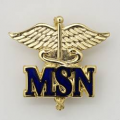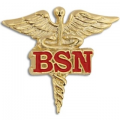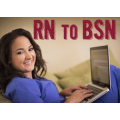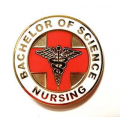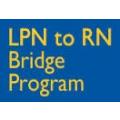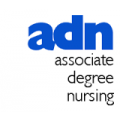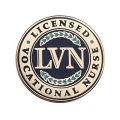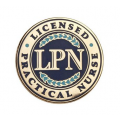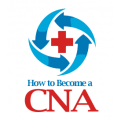A master of science in nursing (MSN) degree prepares students for some of the highest-paid fields in the healthcare industry. Known collectively as advanced practice registered nurses (APRNs), these professionals can earn between $90,000 and $150,000 per year depending upon their field of specialization. Projected employment growth for APRNs is 31 percent over the coming decade, which is significantly higher than average.
Latest articles
Did you know that the average person holds more than ten jobs during his or her lifetime? Some professionals even change careers five to seven times. Although these individuals may hold one or more degrees, their previous education might not meet the requirements of their new career field. This is especially true when entering a technical field like nursing. To qualify as a registered nurse (RN), a candidate must hold a hospital diploma, associate’s degree in nursing (ADN), bachelor of science in nursing (BSN), or direct-entry master of science in nursing (MSN).
An RN-to-BSN completion program is designed specifically for registered nurses (RNs) that already hold a license to practice in the U.S. The program is popular among RNs with an associate’s degree in nursing (ADN) or hospital diploma, because it enables them to complete their baccalaureate degree in a streamlined manner.
Registered nurses (RNs) form the largest healthcare occupation, with more than 2.7 million practicing across the U.S. The field will experience faster-than-average employment growth of 19 percent over the coming decade. This will drive more than 500,000 new nursing jobs, with particularly high demand in general medical and surgical hospitals. Due to the rigorous demands of the job, the nation’s top hospitals prefer to hire talented RNs with at least a bachelor of science in nursing (BSN) degree.
An LPN-to-RN bridge program is a unique program designed specifically for licensed practical nurses (LPNs) that would like to advance their careers. It allows LPNs to earn an associate’s degree in nursing (ADN) – either an associate of science in nursing (ASN) or an associate of applied science in nursing (AAS) – in order to transition into the role of registered nurse (RN). The bridge program builds upon the LPN’s existing knowledge with an advanced curriculum, including a higher-level general education core and nursing coursework.
There are more than 2.7 million registered nurses (RNs) in the United States. The majority of RNs work in medical and surgical hospitals, while the rest are employed by home healthcare services, skilled care facilities, outpatient care centers, and physicians’ offices. As the largest group of healthcare professionals in the medical industry, RNs provide vital care and treatment.
Registered nurses (RNs) make up the largest group of healthcare professionals in the United States. More than 1.5 million RNs work in general medical and surgical hospitals, while another 1.2 million RNs are employed by home healthcare services, nursing care facilities, offices of physicians, and outpatient care centers. Registered nurses administer medications and treatments, perform diagnostic tests, monitor and operate medical equipment, establish care plans, record medical histories, and teach patients and caregivers how to manage illnesses at home.
There are nearly 740,000 healthcare professionals across the U.S. who hold the title licensed practical nurse (LPN) or licensed vocational nurse (LVN). These terms are actually synonymous: 133,000 nurses in California and Texas use the title “LVN,” while those in the remaining states are called “LPN.” An aspiring LVN must enroll in a state-approved education program and pass the National Council Licensure Examination for Practical Nursing (NCLEX-PN).
The U.S. is home to nearly 740,000 healthcare professionals who hold the title licensed practical nurse (LPN) or licensed vocational nurse (LVN). These two titles are actually synonymous: the term "LVN" is used in Texas and California, while "LPN" is the convention elsewhere. All aspiring LPNs must obtain a state license before pursuing employment.
The U.S. is home to around 1.5 million nursing assistants. Most work in skilled nursing facilities or hospitals. Regardless of the setting, aspiring nursing assistants must complete a state-approved education program and pass their state’s competency exam. Passing the exam places them on their state’s registry and allows them to use state-specific titles. While some states such as South Dakota and Indiana use the title “certified nurse aide” (CNA), the most common title is “certified nursing assistant” (also CNA).

